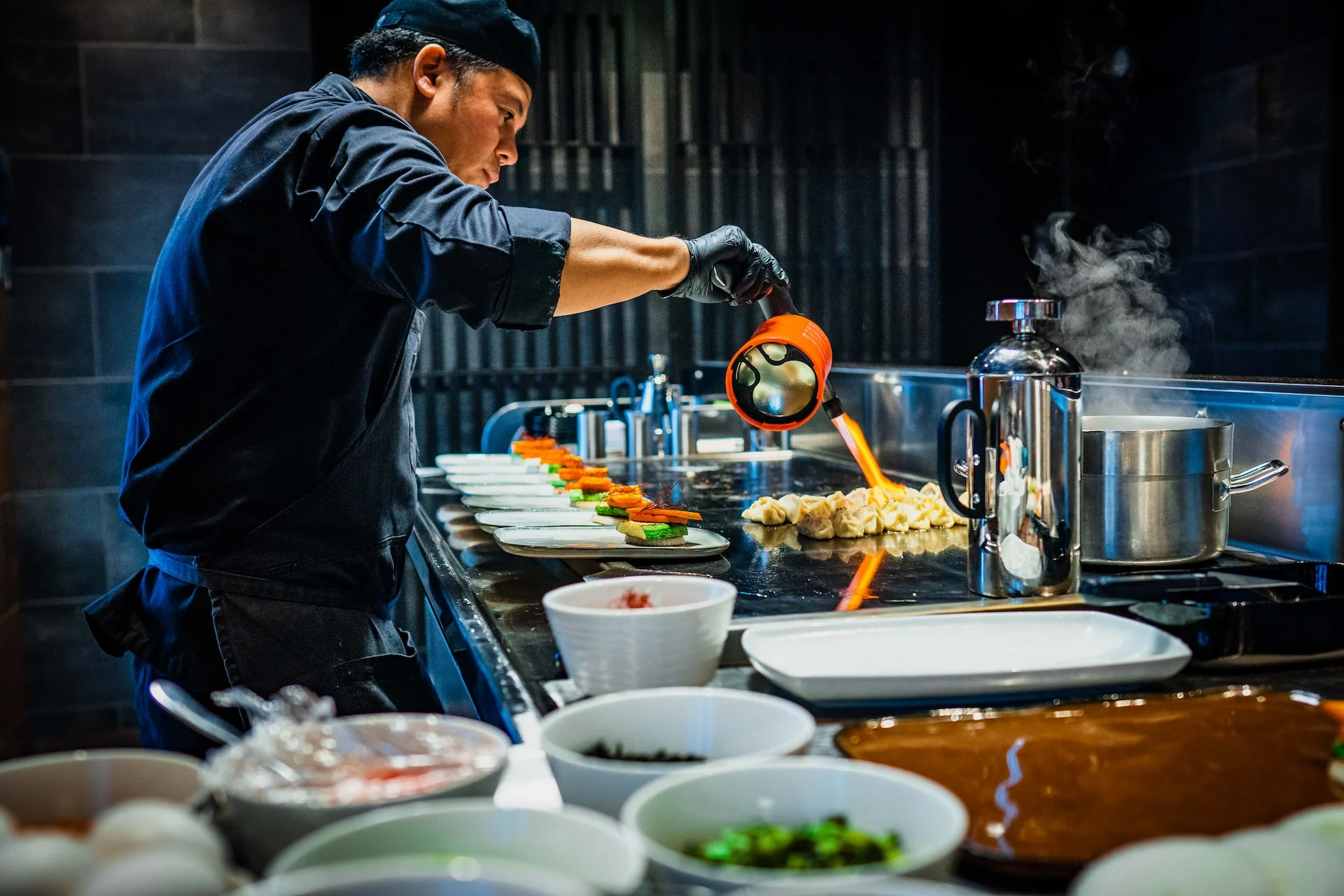As the owner of a catering business, you need to ensure that your staff is properly trained. After all, they are the ones who will be representing your brand and interacting with your customers. With that in mind, here are six tips for training staff at your catering business:
1. Clearly Define Your Expectations
The first step is to clearly define your expectations. What does excellent customer service look like in your business? What are your core values? Make sure that your staff knows what is expected of them and what the consequences are for not meeting those expectations.
The first step in making sure your staff meets your expectations is to clearly communicate those expectations to them. You cannot expect your staff to meet your standards if they do not know what those standards are. Sit down with each member of your staff and go over what you expect from them in their role at the catering business. This will ensure that everyone is on the same page and knows what is expected of them.
Once you’ve set realistic expectations, it’s important to communicate those expectations clearly to your staff. This means being specific about what you expect them to do and how you expect them to do it. For example, rather than just telling your servers that they need to be “friendly and welcoming,” explain that you expect them to greet each table within 30 seconds of guests being seated and to engage in small talk with guests throughout their meal.
It’s one thing to set expectation and communicate them clearly; it’s another thing entirely to actually hold your staff accountable to those standards. This means having regular check-ins with employees to see how they’re doing and addressing any issues that may come up. It also means being consistent in your own behavior; if you expect your staff to be punctual, then you need to be punctual as well.
It is important to hire staff that share the same values as your catering business. If your catering business is all about providing exceptional customer service, then you want to hire employees who also value customer service and are passionate about providing a great experience for every customer. By hiring people who share the same values as your business, you can be confident that they will work hard to meet (and even exceed) your expectations.
2. Teach Them the Basics
Once you have defined your expectations, it is time to teach your staff the basics. This includes things like how to set up and break down a table, how to serve food and drinks, and how to deal with common customer complaints.
One of the most important things your staff need to know is how to handle food safely. This includes everything from keeping food at the proper temperature to preventing cross-contamination. You can find plenty of resources on food safety online, or you can opt for in-person training through a program like ServSafe.
Of course, your staff also need to be familiar with the catering menu inside and out. This means being able to explain each dish in detail and answer any questions a customer might have about it. To get everyone up to speed, go over the menu item by item and have each staff member taste everything so they know what it should look and taste like.
Your staff should also be well-versed in proper serving procedures, from removing dirty dishes from tables to refilling water glasses. In addition to going over these procedures with your staff verbally, you may want to create a step-by-step cheat sheet that they can refer to when they need a reminder.
Finally, don’t forget to spend some time teaching your staff how to provide excellent customer service. This includes everything from greeting customers with a smile to responding quickly to any complaints or requests they may have. Role-playing exercises are a great way to help your team practice their customer service skills in a low-pressure setting.
3. Let Them Shadow Experienced Employees
When you’re onboarding new employees, it’s important that they have a chance to learn the ropes from experienced staff members. One way to ensure this happens is to have them shadow an experienced employee for a day or two. This will give them a chance to see how your business runs and get a feel for what their job will entail. Here’s how to make the most of this onboarding method.
Shadowing is an effective onboarding method because it allows new employees to learn by doing. They’ll be able to see first-hand how experienced employees do their jobs and get a feel for the work environment. This hands-on approach will help them learn quicker and retain more information than if they were simply reading about it or being told about it. Additionally, shadowing can help new employees build relationships with experienced staff members, which will make them feel more comfortable and welcomed in their new role.
When implementing shadowing at your catering business, there are a few things you’ll need to keep in mind. First, you’ll need to choose which employees will serve as shadows. It’s important that these employees are good at their jobs and can effectively communicate what they’re doing. You’ll also need to decide how long the shadowing period will last. We recommend two days for most new hires, but this may vary depending on the position and the experience of the shadow. Finally, you’ll need to create a schedule for the shadowing days so that both the shadow and the employee being shadowed know what to expect.
4. Give Them On-the-Job Training
Once you’re confident that your staff knows the basics, it’s time to give them on-the-job training. This can be done by gradually increasing their responsibility or by giving them specific tasks to complete during their shift.
Providing your catering business employees with on-the-job training is one of the best ways to ensure that they are able to perform their duties in a competent and professional manner. On-the-job training gives employees the opportunity to learn in a hands-on environment and provides them with the chance to get immediate feedback from you, their employer.
There are a few things you should keep in mind when providing on-the-job training for your catering business employees. First, you need to make sure that you are clear about what your expectations are. You should provide employees with a list of specific tasks that they need to be able to complete in order to be considered competent at their job. Secondly, you need to make sure that you provide employees with adequate time to complete the task at hand. Do not overload them with too much information at once, but rather provide them with small chunks of information that they can easily digest and put into practice. Finally, you should offer employees constructive feedback throughout the training process so that they know what they are doing well and where they need improvement.
Advantages of On-the-Job Training
On-the-job training has a number of advantages for both employers and employees. For employers, on-the-job training is an efficient and cost-effective way to train new or existing employees. It allows employers to train employees while they are working, which means there is no loss in productivity. Additionally, on-the-job training allows employers to assess an employee’s ability to learn new skills and perform their job duties in a real work environment.
For employees, on-the-job training is an opportunity to learn new skills in a hands-on environment. It also allows employees to get immediate feedback from their employer, which can help them improve their performance quickly. Additionally, on-the-job training can help Employees build confidence in their ability to perform their job duties and can give them a sense of accomplishment as they master new skills.
Disadvantages of On-the Job Training
While on-the-job training does have its advantages, there are also some disadvantages that employers and employees should be aware of. One disadvantage of on-the-job training is that it can be difficult to control the quality of the training if it is not well planned or executed. Additionally, on-the-job training can be repetitive and monotonous for employees if they are not given adequate variety in the tasks they are asked to perform. Finally, on–the-job training can be costly for employers if they need to hire additional staff members or bring in outside experts to provide assistance with the training process.
5. Offer Ongoing Training Opportunities
Training doesn’t stop once your employees have mastered the basics. In order to keep them up-to-date on changes in the industry and new procedures in your business, offer ongoing training opportunities. This can be done through regular staff meetings or by providing training manuals for them to reference when needed.
6. Be Available for Questions
Finally, make sure that you are available for questions. Your employees will inevitably have questions about their job or about specific situations they encounter while working. By being available to answer their questions, you can help ensure that they are providing excellent customer service and representing your brand well.
Running a catering business is a lot of work, but it can be immensely rewarding. If you take the time to properly train your staff, you can be confident that they will provide excellent customer service and represent your brand well. By following these tips, you can set your business up for success!
Related Catering Articles
Who are the main customers for a Catering Business?
Starting a catering business can be both exciting and daunting. One key factor in its success is understanding who the main customer groups are and how to meet their needs.
How do I name my Catering Business?
Naming your catering business is an important first step in starting your business. It can lay the foundation for how your customers view, remember and engage with your business. Finding the perfect name to fit all those criteria, however, can be a challenge.
Is a Catering Business a good business?
If you’re interested in becoming your own boss and using your passion for food and hospitality to make a living, then starting a catering business could be the perfect opportunity. But before taking the plunge, it’s important to understand exactly what running a catering business entails – from the possible pitfalls to the potential rewards.
7 Things About Opening a Catering Business I Wish I Knew Before Starting
Starting a catering business can be daunting, but it doesn’t have to be! Looking back on my own journey, I’ve compiled seven things I wish I had known before starting out in the world of catering.
Do you need qualifications to start a Catering Business?
Starting your own catering business can be a very rewarding experience. However, there are some things you need to know before you get started. In this article, we will discuss the qualifications you need to start a catering business and provide some tips for success.
8 Step Plan to Quickly Open a Catering Business
Catering is a great way to feed your friends, family, and even strangers! If you’re thinking about starting a catering business, here’s an 8 step plan to help you get started quickly.
Start a Romantic Catering Business: Your Complete Guide
Love is in the air—and so is delicious food. If you’re looking to start a romantic catering business, you’re in luck. This guide will show you everything you need to know to get started.
Start a Deli: Your Ultimate Guide
Ready to take the plunge and start your own deli? It’s a big undertaking, but with careful planning and execution, it can be a hugely rewarding experience. Here’s your ultimate guide to getting started.
Start a Pizza Shop: Your Ultimate Guide
Starting your own pizza shop is a dream for many people. It’s definitely not an easy path to take, but it can be very rewarding. This guide will walk you through everything you need to know to make your dream a reality.










